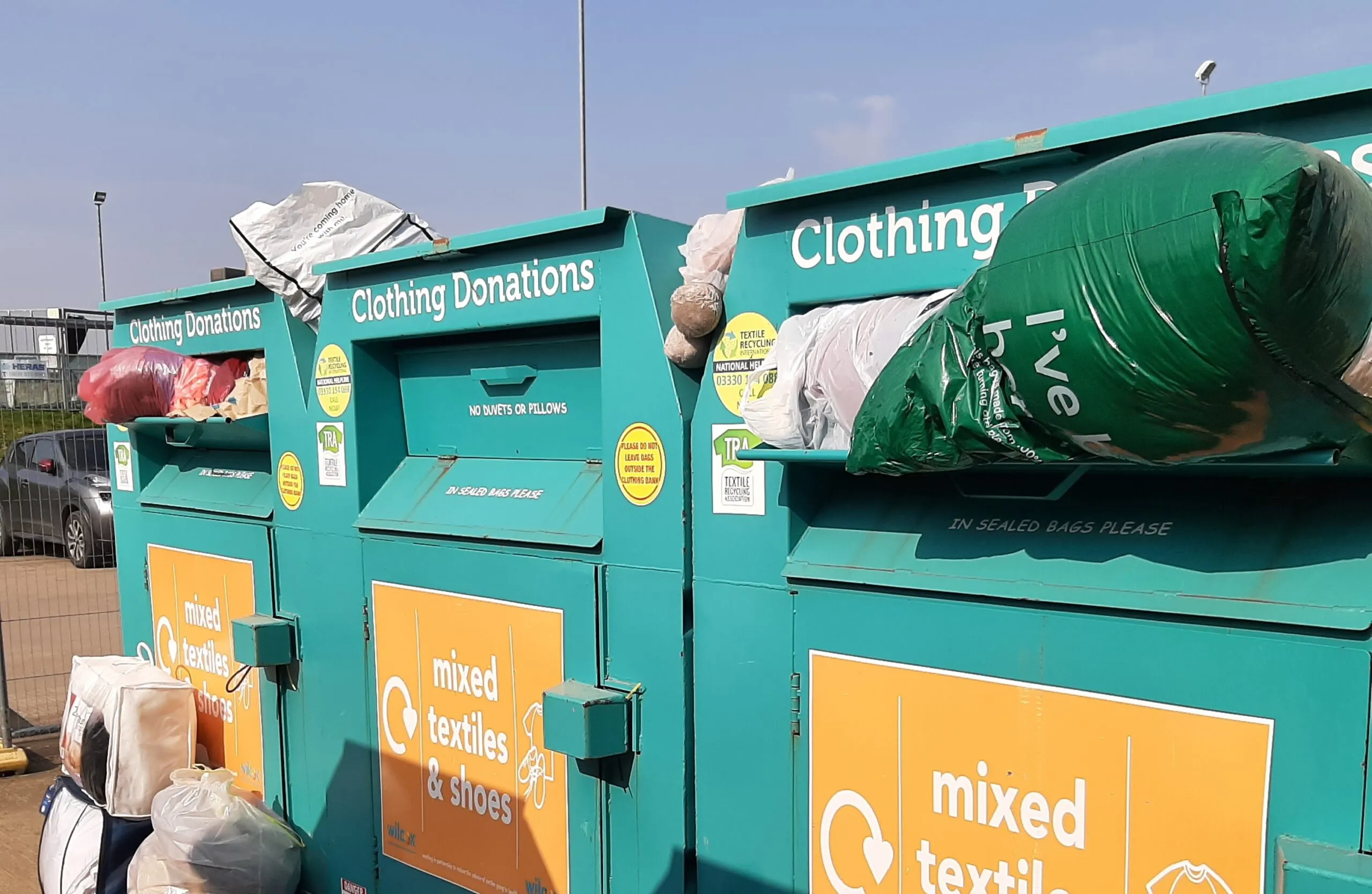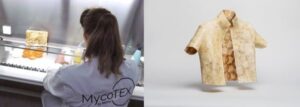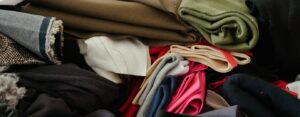Can fashion be circular?

There’s huge pressure on the fashion & apparel industry to create garments that can be used for longer and are made from safe and recycled or renewable resources, but is this possible?
Each year millions of tons of clothes are produced, worn, and thrown away. According to the Ellen MacArthur Foundation, every second, the equivalent of a rubbish truck load of clothes is burnt or buried in landfill. The fashion industry is also one of the major contributors of plastic microfibres entering our oceans. These issues are due in part to “Fast Fashion”, throw away culture and a massive over consumption of consumer goods. In order for the fashion industry to correct this, all aspects of the industry need to be rethought, including the materials used, the resources consumed and the end-to-end supply chain process.
The Ellen MacArthur Foundation was launched in 2010 to accelerate the transition to a circular economy. Since its creation the charity has emerged as a global thought leader, establishing the circular economy on the agenda of decision makers across business, government and academia.
The Foundation has created a vision for the fashion industry to redesign the way clothes are made and used. The vision will require industry and government to work together. It will need significant investment, large-scale innovation, transparency, and traceability. The hope is that if these actions are taken together and start today, this new system can scale fast.
You can find out more about the Ellen MacArthur Foundation’s Vision for the Fashion Industry, together with other useful resources on their website.
At Strategic Allies, we’re seeing a major uptick in client projects looking at replacing materials with more sustainable alternatives & looking at making manufacturing processes more efficient and less wasteful. Here are some of the young exciting companies that we’ve come across that are doing things differently.
NEFFA is a young company, based in the Netherlands, that is challenging the materials and production techniques used in the fashion & apparel industries, to provide personalised garments for mass production. NEFFA have developed MycoTEX®, a ground breaking seamless manufacturing method allowing for custom-made clothes made from compostable mushroom roots.
NEFFA have been recognised for the work they are doing and is one of the winners of the H&M Global Change Awards, resulting in them featuring in the H&M Foundation Billion Dollar Collection campaign. Winning this award has enabled NEFFA to move forward with their new manufacturing technology & are planning to fully commercialise MycoTEX® in 2022.

Werewool is a biomaterials company designing a revolutionary fibre development platform to create biodegradable fibres with tailored aesthetic and performance properties. Inspired by nature, and utilising the tools of biotechnology, Werewool has created a grass roots synthetic biology kit to enable people to design fibres with inherent properties such as colour, moisture management, and stretch, to meet the demands of today’s consumers.
The company’s fibre development platform can reduce the fashion industry’s impact on our dwindling natural resources, by eliminating the ecotoxicity of dyes, reducing the raw material impact of fibre production, and the end of life implications of synthetic fibres.
DyeRecycle is a very recent start-up, providing an integrated circular chemical technology to decolor textile waste and reuse old dyes. In 2021 DyeRecycle, , co-founded by Imperial College London Chemical Engineering PhD students Aida Rafat and Anton Firth, won the Mayor of London’s Entrepreneur Competition, winning £20,000 to kick-start the business.
The team has developed a patent-pending process that takes in coloured textile waste and transfers the colour onto new material, decolourising the waste. The resulting white fibres are then more easily recycled and carry a higher value. DyeRecycle’s process also recycles the dyes, creating a new, circular source of dyes. The team plans to source their textile waste from London’s large, established sorting houses. Decoloured material could then be sold to textile recyclers and offer a sustainable dying service to London’s 1,500 apparel manufacturers.

Ponda (previously SaltyCo) is a young UK based, materials science company that makes planet-positive textiles, using regenerative agricultural practices. Their first product, is BioPuff®, a plant-based fibre fill material designed to keep you warm without harming the environment. This alternative to animal and petroleum-based products is created by growing plants using regenerative wetland agriculture. The new material resembles down with its cluster structure; it is lightweight, warm, and naturally water repellent whilst also being biodegradable and cruelty free.
The Ponda vision is to build a planet positive supply chain, utilising regenerative agriculture practices to grow the plants to make their materials. Approaches include: Conservation agriculture to restore natural ecosystems by removing invasive crops that dominate local environments. This farming method promotes biodiversity and soil health; Paludiculture which is the practice of farming on wetlands, such as rewetted peatlands, bogs and fens. Peatlands sequester and store 3-5% more carbon than any other terrestrial land or forest; Alternative water farming which uses non-freshwater sources for plant irrigation. The over-irrigation of traditional farming is leading to desertification and salinised land.
This is just a small selection of the many young companies we have recently come across, and there are lots of others out there. We are optimistic that the industry can change, but it’s going to take some time, investment, and a concerted effort from all players across the apparel value chain. The development of new materials is certainly one very important element of this, but equally essential are factors such as improving recycling infrastructure, reducing waste and pollution throughout the supply chain, and designing clothing with circularity in mind.
Strategic Allies works with multinational manufacturing companies, across all sectors, who are seeking differentiation through partners with innovative technologies and solutions for their products and services. If you’d like to find out more about how we can help you to explore and exploit new markets and/or offer opportunities to differentiate your offerings, please contact John Allies at john@strategicallies.co.uk